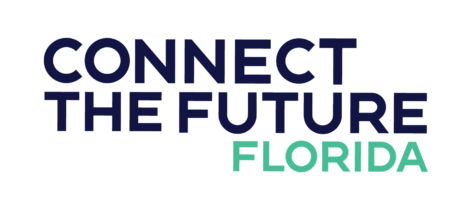Rep. Michelle Salzman, Charter Communications & Connect the Future Join the Consortium of Florida Education Foundations to Discuss Connecting All Floridians to Broadband
The Consortium of Florida Education Foundations (CFEF) recently led a discussion with Connect the Future (CTF) and Charter Communications to discuss how broadband disparities in Florida have impacted students and their educational experiences. The virtual webinar was moderated by CFEF President and CEO Mary Chance and featured Charter’s Marva Johnson, Connect the Future’s Zach Cikanek, and Florida State Representative Michelle Salzman (R-District 1).

The panelists agreed: while Florida ranks in the top 5 states for broadband availability, there is still more work to be done to connect all Floridians.
Access to reliable high-speed internet is more important than ever, yet more than 804,000 Floridians remain unconnected. Additionally, nearly 20 percent of Florida’s rural population do not have access to a broadband connection, and only 11 out of the 67 counties in Florida have what can be classified as “100 percent” broadband availability.
As Charter’s Marva Johnson pointed out, “We don’t think about these pockets across the state with people who are stuck on the wrong side of digital divide. For example, Manatee County is at 99.4 percent connected, which sounds fantastic, unless you’re in that 0.6 percent. That 0.6 percent equates to over 2,400 Floridians.”
“The divide between students who have and students who do not have high speed broadband service is becoming more and more stark and having a greater impact on these students’ academic development,” added CTF’s Zach Cikanek.
Everyone in the discussion agreed that more must be done to connect all Floridians – and that it must be done quickly. The panelists highlighted a few exciting upcoming initiatives that aim to bridge Florida’s digital divide, including the nearly $23 million dollars awarded to Charter from the FCC’s Rural Digital Opportunity Fund to build out broadband infrastructure in the Sunshine State, and legislation like House Bill 1239 that addresses barriers to broadband infrastructure deployment. This bill puts into place critical protections to cap municipal utility pole rate increases, and addresses the sharing of pole replacement costs between broadband providers and these utilities, when new poles are need to accommodate buildout.
“Broadband should certainly be something that the government makes sure everybody has access to in rural and low-income communities. And not just internet but quality internet, which is so incredibly important because one does not equal the other,” said Rep. Salzman. As all of the panelists noted, only through continued collaboration between nonprofits, educators, policymakers, and the private sector, can we accomplish these goals and connect more Floridians, without any further delay.
